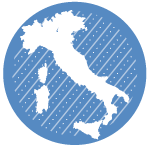As in other countries, those responsible for UAMs agree that being in a family is a good thing for many of the children. However, in practice this is not very common in Italy as most of them are placed in residential settings rather than in foster families.
However, an example of excellent practice within foster care for UAMs can be found Venice.
Venice
The Municipality of Venice started taking care of UAMs in 1997. Nowadays around 50% of them stay in families, most of whom are relatives (brothers, sisters, uncles or aunts).
When it comes to UAMs, living within families with the same cultural background has proved to be very useful. These families have been immigrants themselves and therefore have had similar experiences as the minor and they are able to help the minor to find solutions for any problems faced.
The Municipality of Venice has a team that is trained specifically on finding, training and supporting foster families. The social service department specifically responsible for UAMs works in partnership with this team to find a family for the minor and to assess their suitability. This staff consists of social workers, educators and psychologists.
Foster families receive financial assistance: relatives receive payment according to their income bracket (according to Italian law, people related to a minor within the fourth degree of kinship are responsible for the minor if the parents are absent, so if relatives are able to financially support the minor themselves they do not receive any money from the municipality). All foster families that are not related to a child operate on a voluntary basis and receive around 500 euro a month to cover their costs.
There are no statistics on the effects of reception of UAMs within families in Venice. However, experience shows the municipality that placement within families works much better than living in institutions when it comes to fulfilling the minors’ needs. On top of that, the municipality states that it is cheaper. Finally, minors who live in institutions have to leave when they turn 18, and experience this as very difficult. Those who live in families do not usually have that problem. They are able to stay within the family after they have turned 18 and some costs may even be paid for, for instance to complete a course of study taking up to one more year.
Contact
Équipe Minori Stranieri Non Residenti EMSNR
(Staff for foreign non-resident minors)
Via Tevere, 92 – 30173 Mestre (VE)
Lucia Trivellato
+39 41 5353721
lucia.trivellato@comune.venezia.it
Lisa Lamon
+39 41 5353733
lisa.lamon@comune.venezia.it
Rome and Florence
In June 2014 a small project on foster families with the UAMs cultural background started in Rome. In Florence, Donne Nosostras, an organization for migrants in Florence, is trying to set up a similar project. In October 2014, Donne Nosostras organized a conference for social workers who work with families and minors in Toscany, aiming at promoting foster care, encouraging the use of it within communities with different cultural backgrounds and increasing the number of migrant families available for fostering.
Contact
www.nosotras.it

